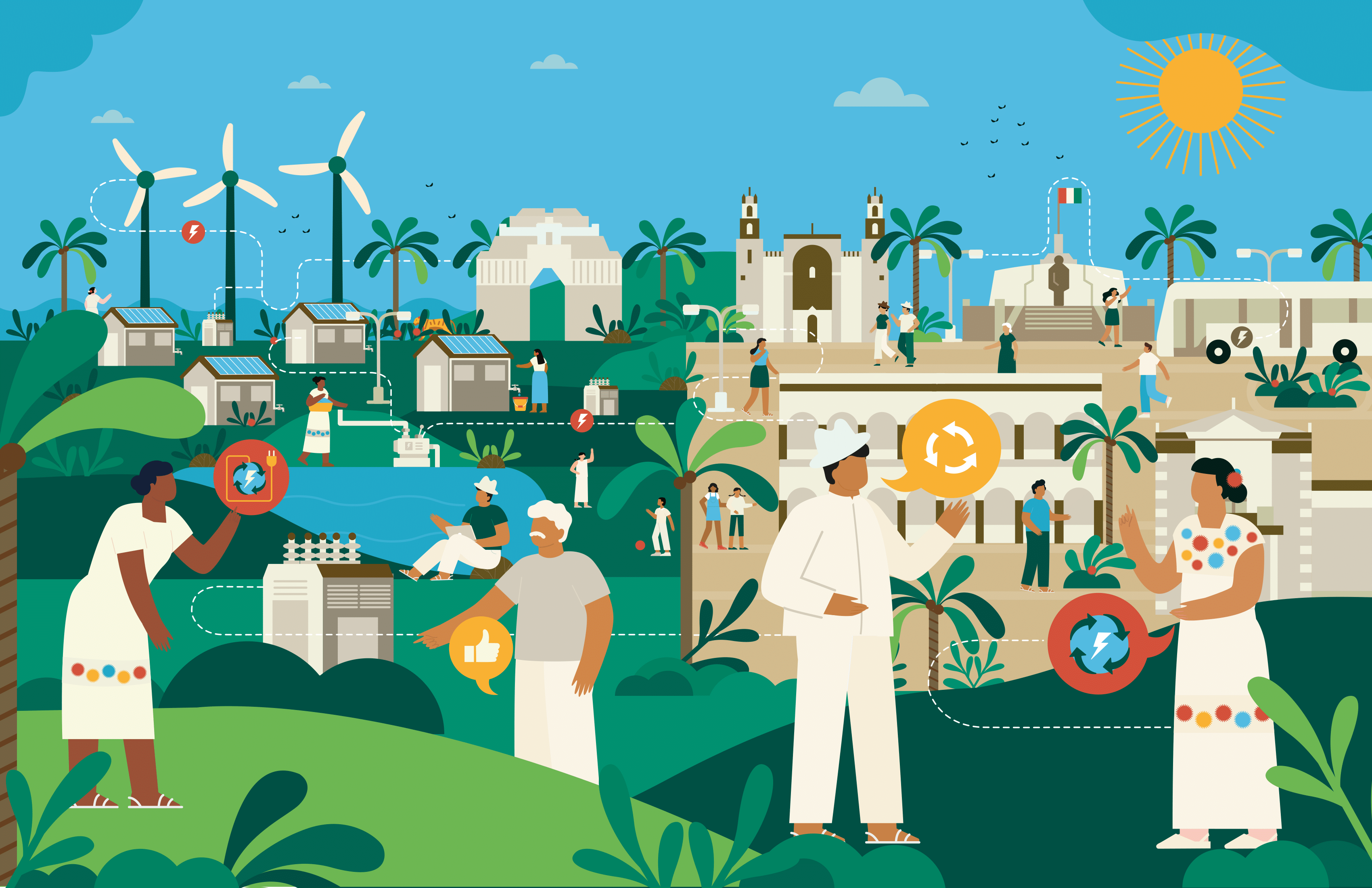A focus on the social, economic and environmental co-benefits of sustainable energy has been positioned as a tool at a local level, in order to highlight the positive effects of sustainable energy, not only in mitigation and adaptation to climate change, but also in other benefits such as job creation, savings and increased well-being for communities.
This is why, in an alliance between the Deutsche Gesellschaft für Internationale Zusammenarbeit (GIZ) GmbH through the project Enhancing the Coherence of Climate and Energy Policies in Mexico (CONECC) together with the Yucatan Government, through the Secretariat of Economic Development and Work (SEFOET) and the Secretariat for Sustainable Development (SDS), the study “Co-benefits: Employment Opportunities and Local Benefits of Community Participation in Renewable Energy Projects in Yucatan was presented. The objective is to provide public policy makers and other relevant stakeholders with methodological tools to quantify the co-benefits of sustainable energy in the state’s social, economic and climate agendas.
At the presentation event, Marita Brömmelmeier, Resident Director of GIZ in Mexico; the Secretary of Sustainable Development, M.I.A. Sayda Rodríguez Gómez and Juan Carlos Vega Milke, SEFOET Undersecretary of Energy, shared welcome messages, acknowledging the effort put into the report, since it contains relevant information to promote compliance with the state’s climate goals, taking into account social opportunities for communities. It was mentioned that the study positions the state as a benchmark on the road to the energy transition, inviting other sectors to join the change and thus reap the benefits generated from future projects.
The director of the CONECC project, Jonas Russbild, reiterated the wish to continue working on the quantification of co-benefits to obtain inputs that trigger social narratives around the implementation of climate policies as tools for local and national development.
The study presented highlights that, under an ambitious scenario of clean energy deployment, Zero Carbon Transition, 247,000 direct, indirect and induced jobs could be created in renewable energy projects, saving 133 billion pesos under a net metering scheme in Yucatán by 2050.
Additionally, Mirelle de Fátima Segovia Martín, from the Energy and Industrial Headquarters of the Under-Secretariat of Energy in Yucatan, commented that for the state, the analysis of the multiple benefits of sustainable energy facilitates the implementation of actions that allow the reinforcement of unity and hand-in-hand work with other state governments in the region and the inclusion of other key actors in the energy transition –as well as obtaining concrete data and transmitting results to enhance the participation of all actors.
Through co-benefits, actions and alliances can be triggered to strengthen local climate action and a people-based energy transition.
To learn more about the results, we invite you to download the complete study:
The presentations used in the event can be consulted through the following links:
- Presentation: Mirelle de Fátima Segovia Martín: Climate Action from a Perspective of Social, Environmental and Economic Co-benefits of Sustainable Energy: The Yucatan Experience.
- Presentation: José Castro: Results and Methodological Elements of the Analysis of Local Co-benefits of Community Participation in Renewable Energy Projects in the State of Yucatan.
- Presentation: Jonas Russbild: Co-benefits Mexico: Contribution of the Energy Transition to the Well-being of the Population.

